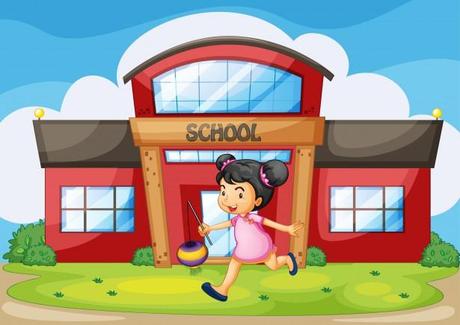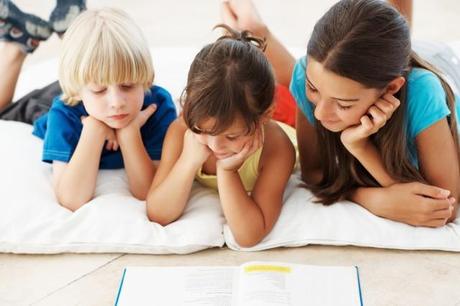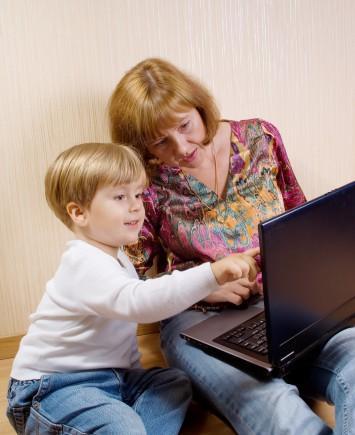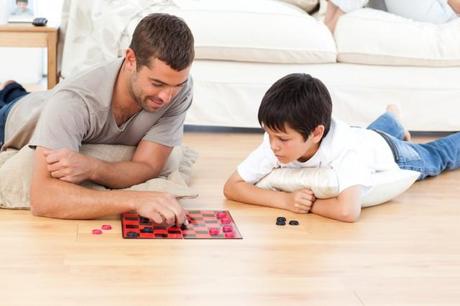
Christmas signals a time off school. But, when school resumes after the Christmas break, you want your children to be ready for a smooth January re-entry. There are lots of fun activities you can do with your kids to ensure that academic skills like reading, writing, and math don’t deteriorate while they are on vacation. Here are some suggestions:
Read for fun and learning
Whether your child reads a holiday story like ‘Twas the Night before Christmas or a new novel he received as a Christmas gift, or a library book, vacation is the perfect opportunity to read for fun. Take turns reading from classic tales. Or listen to your child read aloud. Some great Christmas books are listed in the resources section below.

Cooking with Kids
Cooking is a great way to practice reading, following directions, fractions, measurement, time and temperature. See the RMC article on Christmas Cooking with Grandkids for easy and kid-friendly recipes.
Molding Fun
This activity provides kids with reading, math, following directions and creative skills. A non-edible but fun substance is play dough. Work with kids to read and follow directions for this play dough:
3 cups flour
1.5 cups salt
6 tsp. cream of tartar
3 tbsp. oil
3 cups water
Pour all ingredients into a large pot. Stir constantly over medium heat until a dough ball forms by pulling away from the sides. Knead dough for a minute or two until the texture is smooth and can be molded. Store in a plastic container. This modeling material will last for at least three months.
If your kids are of the age when they eat things (including glue and play dough) here is an edible play dough recipe:
1 1/2 cup warm water
1 package dry yeast
1 egg
1/4 cup honey
1/4 cup margarine
1 teaspoon salt
5 cups flour
Set oven for 350. Dissolve yeast in 1 1/2 cups very warm water. Add egg, honey, margarine and salt. Stir in flour a little at a time until makes a ball. Set timer for five minutes. Knead dough for 5 minutes. Make sculptures or shapes flat on cookie sheet. Set timer for twenty-five minutes. Cover with towel for 25 minutes. Set timer for twenty minutes. Bake for 20 minutes. Cool. Eat or shellac to keep creations!
Send Greeting and Thank You Notes
A good way to practice writing skills and etiquette is to work with your children composing thank you notes or poetry for cards. Have children follow directions to make their own notes and cards using the computer and printer. This activity polishes reading, writing and computer skills.

Capitalize on Christmas Travel Time
Turn those long trips for holiday get-togethers into travel games which reinforce reading, writing, geography and math skills. Have kids look for specific numbers, letters, license plates from different states, count the number of cars of a specific color and discover facts about the owns you pass through. See the RMC article on keeping school skills sharp over the summer for additional ideas.
Make Shopping a Math Adventure
A trip to the grocery store affords all sorts of reading and math opportunities. Inventory your cupboards with your kids. Create a list. Group listed items into food categories. Alphabetize the list. Practice spelling of the items. Read grocer flyers. Have kids estimate item costs on your list. Have your child help you formulate a menu for the week and choose what to buy, decide how much you need, check your supplies to see what you’ve already got. Sort coupons. Add totals. Figure out the savings. Count money and check addition of receipt. The opportunities in this area are endless.
Family Games
Games are a great way to spend time together as a family, and practice such skills as reading, math, following directions, vocabulary, spelling, taking turns, and using reasoning skills. The following a great games to play with kids: Candy Land, Monopoly, Chess, Checkers, Scrabble, Boggle, Clue, Farkle, Cribbage, Wizard, Phase 10, Chutes and Ladders, Pictograph, Charades, Trivial Pursuit, Tic Tac Toe, Battleship.
As well as board games, there are many games you and your kids can play on the computer: Hearts, Solitaire, Farkle, Tic Tac Toe, Crazy Eights.

Car or Portable Games
For those long car trips when “I Spy” and License Math games wear thin, here are portable math games that require little equipment.
Equations: Here’s a game that requires only paper, pencil and three dice. It’s very portable. Each player writes the numbers from 1 to 18 on a piece of paper. The first player rolls three dice. Taking turns, players use any combination of addition, subtraction, multiplication and/or division to arrive at one of the numbers on their paper. (e.g.: if he rolls 6 and 5 and 2, he can add these numbers to get 13). If it is correct, that player covers or crosses out that number. Play continues until next player does the same thing and so on. The game is over when a player has covered or crossed out all of his numbers. Kids can even play this in the car. With older children numbers may be increased to 36.
A standard deck of playing cards is very portable and can be used for number recognition, greater than an less than, addition, subtraction, and multiplication, concentration, solitaire, crazy eights and a host of other games!
Go Fish is a set collection game in which players try to gather sets of four cards of the same rank by asking other players for cards they might have. Five cards are dealt to each player if three to six players are involved. With only two players, seven cards are dealt to each. The remaining cards are placed face down in the middle. The person to the dealer’s right starts. On your turn, ask a player for a specific card rank. For example: “Barb, please give me your 9’s.” You must already hold at least one card of the requested rank. Barb must then give up all her 9’s. If she does not have any, she says, “Go fish!” If Barb has 9’s then the player then gets another turn to ask for any rank he already holds, including the same one he just asked for. “Go fish.” Means the player then draws the top card from the center. If he draws the rank he asked for, he has to show it to the other players and then he gets another turn. Otherwise, it becomes the next player’s turn and player keeps the drawn card, whatever rank it is. Next player to play is the one who said, “Go fish.”
When you collect a set of four cards, immediately show the set to the other players and place the four cards face down in front of you. Game continues until either someone has no cards left in their hand or the draw pile runs out. The winner is the player with the most sets of four.
Snap is a matching game. The dealer shuffles the cards and deals until they are all dealt. Some players to have one card more than other players. Cards are placed face down in a pile in front of each player. The player to the left of the dealer goes first. When it is his turn each player turns over the top card from his face-down pile. When someone turns over a card that matches a card already face up on another player’s pile, players race to be the first to call “Snap!” The player who calls “Snap!” first wins both piles and adds them to the bottom of his face-down pile. Those without cards continue to say “Snap!” even if they have no card to turn over. In the case of a “snap” tie, the pile is split. If “snap” is miscalled that player must give his top card to the player on his right who puts it on the bottom of his own pile. Play continues until one player has all the cards.
A Picture is Worth a Thousand Words
Have children use pictures taken over the holidays to create hard copy or digital photo essays. This is an excellent use of writing, spelling, and keyboarding skills as well as following directions to use a software program.
There are many opportunities for keeping kids math, reading and writing skills sharp over the Christmas Break. Many of them don’t take a lot of time and money. In addition to keeping skills sharp, often these activities provide valuable family time and don’t leave your kids feeling as if they are doing homework!
Resources: Christmas Books
A Christmas Carol. Charles Dickens
A Wish to be a Christmas Tree. Colleen Monroe
Eloise at Christmas Time. Kay Thompson
Frosty the Snowman. Golden Book
How the Grinch Stole Christmas. Dr. Seuss
Mr. Willoughby’s Christmas Tree. Robert Barry
Rudolph the Red-Nosed Reindeer. Dennis Shealy
Santa Mouse. Michael Brown
Snowmen at Night. Caralyn Buehner
The Best Christmas Pageant Ever. Barbara Robinson
The Christmas Bus. Melody Carlson
The Christmas Sweater. Glenn Beck
The Life and Adventures of Santa Claus. L. Frank Baum
The Secret of St. Nicholas. Ellen Nibali
The Truth about Santa: Wormholes, Robots and what really happens on Christmas Eve. Gregory Mone
‘Twas the Night before Christmas. Clement Clark Moore
Who is coming to Our House? Joseph Slate
